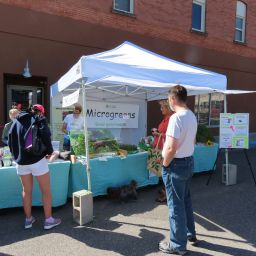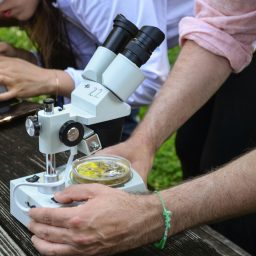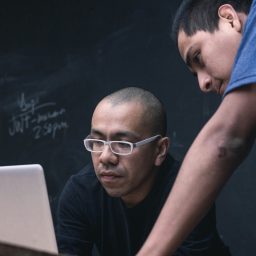PREP was a nonprofit organization created by U.S. Senator James Jeffords to improve education and meet workforce needs in the Washington, DC area. Even though Senator Jeffords was from Vermont, he developed a real love for the District when he served as the Chairperson of the DC Appropriations Subcommittee and wanted to give something back to the city that had become his second home. George Washington University’s Institute for Education Policy Studies generously agreed to house PREP, and modest initial corporate funding launched our upstart initiative.
With Senator Jeffords’ support, PREP started with huge fanfare. All the area university presidents, community college presidents, and school superintendents in the District and Maryland and Virginia suburbs became honorary co-chairs. Working groups quickly formed that included representatives from the area’s local governments, school districts, chambers of commerce and business leaders, and academics.
We started with three working committees based on the priorities of participants: educational quality, school safety, and workforce transitions. We met regularly, wrote proposals and won grants, and implemented a variety of projects that transcended state borders. We even became a nationally recognized “School to Work Intermediary Organization,” a new federal program at the time co-sponsored by the U.S. Department of Education and U.S. Department of Labor. We also hosted annual conferences for the larger metropolitan community to participate in the conversation. The initiative was so successful that it was subsumed some years later by the Washington Metropolitan Area Council of Governments.
There were many reasons this experience was so exciting. Perhaps the most was the cross-cultural discussions in the working groups. The cultural differences were not across ethnic, racial, or even geographical lines but, instead, across professional lines. It took six months of meetings at the start of the initiative for people to start listening to each other. While some business leaders wanted quick action, for example, some academics wanted time to think about all potential consequences of any particular decision. There were also some big differences among the business partners. The young technology entrepreneurs who wanted to wire low-income buildings for the internet had very different priorities than the AT&T executives.
To the group’s credit, almost everyone who volunteered at the outset stuck with the process the two years I led the initiative, and most well beyond. Participants did grow to appreciate each other’s contributions, and the projects were more effective because of the diversity of experiences.
It is for these reasons that I have been so excited by the launch of our Doab Development community. After only two months since our launch, dozens of people have joined the network, and we now have 28 Featured Associates. Like my earlier experience with PREP and other organic networks, Doab Development collaborators are extremely diverse in content expertise, regional knowledge, stage of career, and life experience. We are still early in the development of the Doab network, but collaborators have already worked together on proposals and joint projects. I look forward to seeing how the network evolves over time and will report back periodically with updates.
In the meantime, I highly recommend starting or participating in collaborative networks when grappling with issues ripe for mutual support. Under the right circumstances, the whole can definitely be more than the sum of its parts. Following are three suggested strategies for setting up organic professional networks for success:
- Set reasonable expectations for the collaborative process. The power of an organic professional network is that participants learn more from each other than would otherwise be the case if the group was more homogenous. However, that learning comes with a cost. It takes time to learn from people with different views and experiences, and participants need to be patient and take sufficient time to learn about other members. That is part of the fun and when participants can potentially learn the most. At the same time, the learning process can’t last indefinitely, and participants must also appreciate that the ultimate purpose of the group is to elicit action and achieve results. It is therefore important that the initial facilitator of the group be upfront about these dynamics and clear about timelines for discussion and processes decision-making.
- Start with at least some initial ideas for action. There is a difference between spurring an organic professional network and shepherding a free-for-all. It might feel more democratic and empowering to give a group free reign over an agenda, but this might create more frustration in the end. It is more difficult to come up with a completely new idea through group-think than to consider an idea that a member brings to the discussion. That initial idea might not take hold, but having a specific starting point for discussion can give the group some parameters and a concrete idea on which to build or redirect.
- Keep calibrating. As the founder or facilitator of the group, it is important to think periodically about where the work is heading. Is it moving in the direction you had expected? Is it moving in a different direction but still aligned with the initial goals? Or is the group action evolving into something completely different? Like all members, founders and facilitators have the right to call out when the group dynamic is moving away from the original purpose. This kind of check can be helpful in moving the group back to its overall purpose—or, as circumstances develop, override the original plan and decide to do something else. Moving in a new direction may be beyond the control of any one person. That is one of the risks and rewards of an organic network. The founder or facilitator can then decide whether he or she is comfortable and committed enough to continue with the new approach.
Have you helped to create or contributed to an organic professional network? How did it go? What were your takeaways from the experience? Please join the conversation and let us know. And please consider joining the Doab Development community.












